Text
Girls and women are systematically tracked away from science and math throughout their educations, limiting their training and options to go into these fields as adults.
2 notes
·
View notes
Text
"The beauty of mathematics only shows itself to more patient followers "
-Maryam Mirzakhani
1 note
·
View note
Text
Valerie Thomas (1943-Present)
" Figuring out what you want comes from failing, and then trying again. It comes from questioning everything, falling in love, fighting the power, living without limits. It doesn't come from getting straight A’s, playing by the rules, and listening obediently "
-Valerie Thomas
Valerie Thomas is a distinguished scientist and is best known for inventing the illusion Transmitter—a 3-Dimensional Imaging Technology that was the first of its kind when it debuted in 1980. In fact, this technology is the basis for modern 3D imaging tech that we see in modern televisions, video games, and movies
Additionally, Valerie Thomas works as a developer and engineer for NASA from 1964 to 1995. During her career at NASA, she managed a team that facilitated the reception of the first satellite images to be received from outer space.
0 notes
Text
Julia Robinson (1919-1985)
"I like to think of mathematicians as forming a nation or our own without distinctions of geographical origin, race, creed, sex, age, or even time…all dedicated to the most beautiful of the arts and sciences "
-Julia Robinson
0 notes
Text
Emmy Noether (1882-1935)
" My methods are really methods of working and thinking; this is why they have crept in everywhere anonymously"
-Emmy Noether
0 notes
Text
Sofia Kovalevskaya (1850-1891)
" It is impossible to be a mathematician without being a poet in soul "
-Sofia Kovalevskaya
Sofia Kovalevskaya is yet another incredible and inspiring female mathematician who overcame the gender biases of her time to make significant contributions to the field of mathematics.
Her greatest contribution to the field of mathematics was in her studies of differential equations and elliptic integrals, namely in relation to understanding the workings of Saturn and its rings.
0 notes
Text
Ada Lovelace (1815-1852)
" The more I study, the more insatiable do I feel my genius for it to be "
-Ada Lovelace
Ada Lovelace was an English Mathematician who is regarded as the world’s first computer programmer.
In 1836, she wrote the world’s first computer program known as an algorithm for an Analytical Engine to compute Bernoulli numbers.
In 1852, Lovelace died due to an illness at only 37 years old. However, despite her short life, she made significant contributions to the fields of mathematics and computer science that can still be seen to this day. She is still regarded as the first person to understand the potential of a computing machine.
0 notes
Text
" Algebra is but written geometry, and geometry is but figured algebra "
-Sophia Germain
0 notes
Photo
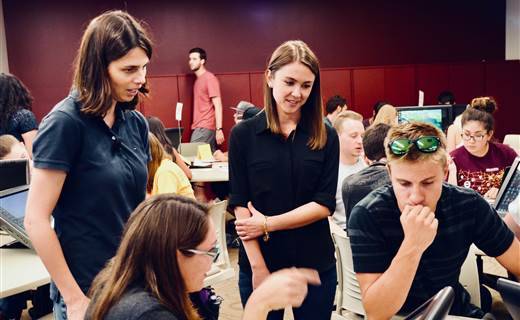
Men overestimate intelligence in science class, study shows.
A new study found that men in STEM subject areas overestimate their own intelligence and credentials, underestimate the abilities of female colleagues, and that as a result, women themselves doubt their abilities — even when hard evidence such as grades say otherwise.
By any definition, Gwen Pearson is pretty smart. She’s got a Ph.D in entomology and she is now a science writer and education coordinator.
But she remembers how often she was told she wasn’t good enough, simply because she was female.
“As a graduate student, a fellow male student said, to my face, that he had no idea how I was admitted to the program because I clearly wasn’t smart enough to be there,” Pearson recalls.
Women in science, technology, engineering and math (STEM) careers have countless similar stories.
Read more here.
6K notes
·
View notes
Text
Sofia Vasilyevna Kovalevskaya
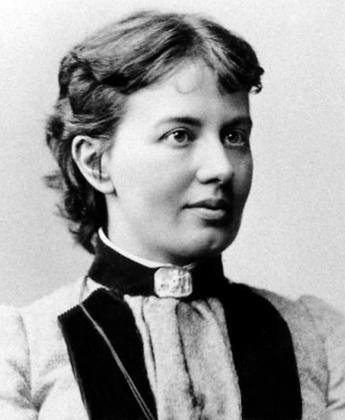
Sofia Vasilyevna Kovalevskaya was a Russian mathematician who made noteworthy contributions to analysis, partial differential equations and mechanics. She was the first major Russian female mathematician and a pioneer for women in mathematics around the world. She was the first woman appointed to a full professorship in Northern Europe and was also one of the first women to work for a scientific journal as an editor.
Despite her obvious talent for mathematics, she could not complete her education in Russia. At that time, women there were not allowed to attend universities. In order to study abroad, she needed written permission from her father (or husband). Together with her husband, she emigrated from Russia in 1867.
In Octoer 1870, she moved to Berlin, where she took private lessons with Karl Weierstrass, as the university would not even allow her to audit classes. In 1874 she presented three papers—on partial differential equations, on the dynamics of Saturn’s rings and on elliptic integrals—to the University of Göttingen as her doctoral dissertation. With the support of Weierstrass, this earned her a doctorate in mathematics summa cum laude, bypassing the usual required lectures and examinations.
She thereby became the first woman in Europe to hold that degree. Her paper on partial differential equations contains what is now commonly known as the Cauchy–Kovalevskaya theorem, which gives conditions for the existence of solutions to a certain class of those equations.
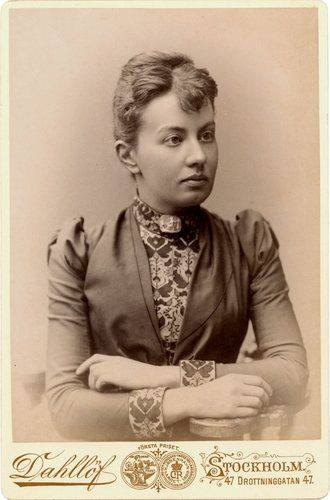
30/01/1884 - Sofia Kovalevskaya gives her first university lecture. This was the first regular lecture by a woman at a research institution in any field in modern times.
127 notes
·
View notes
Text
creation4inspiration
i have so much respect for women in science. they are erased from history books, insulted time and time again, made out to be lesser than they are but they never stop.
they keep at it, they invent, they discover, they innovate, they create, they help and they lead for minimal appreciation. they deserve so much more recognition that it is painful. women in science are goddesses and nothing can change my mind.
11K notes
·
View notes
Text
This goal of this blog is to educate, advocate, and empower women of all ages in STEM.
1 note
·
View note
Photo
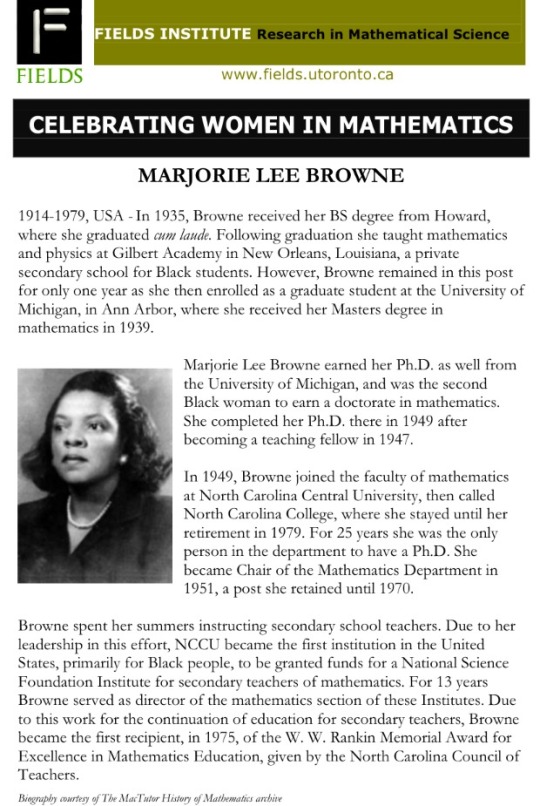
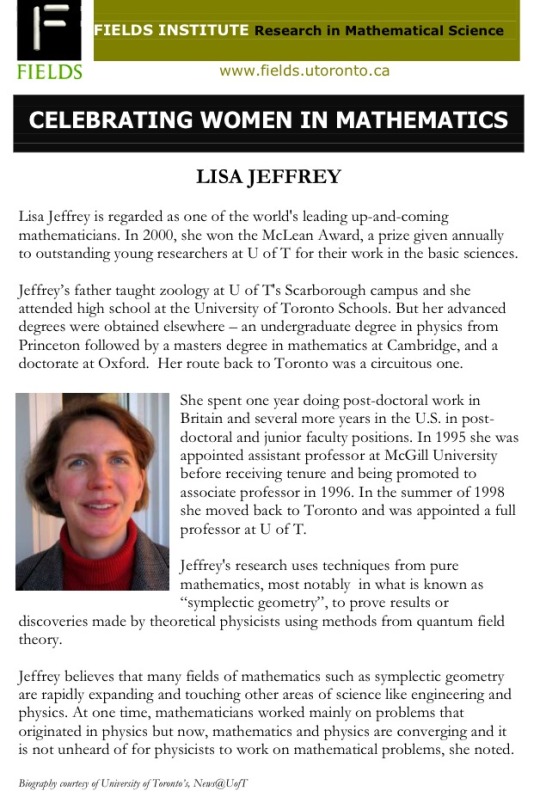
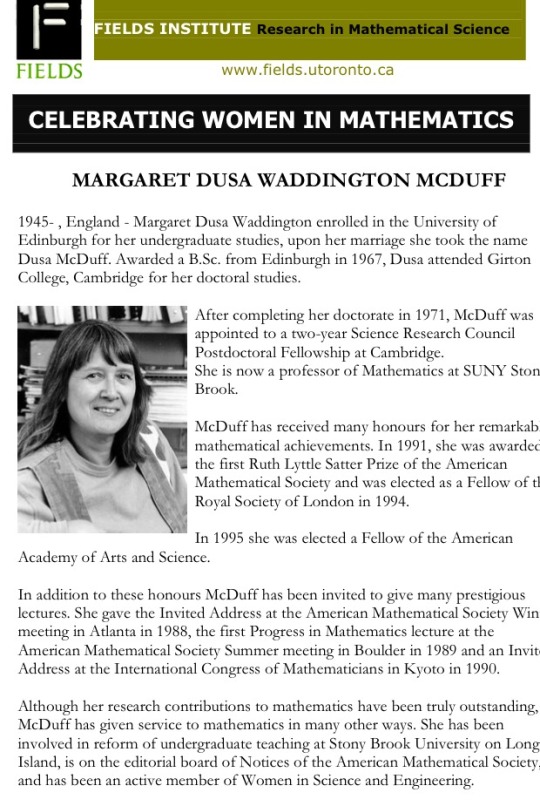
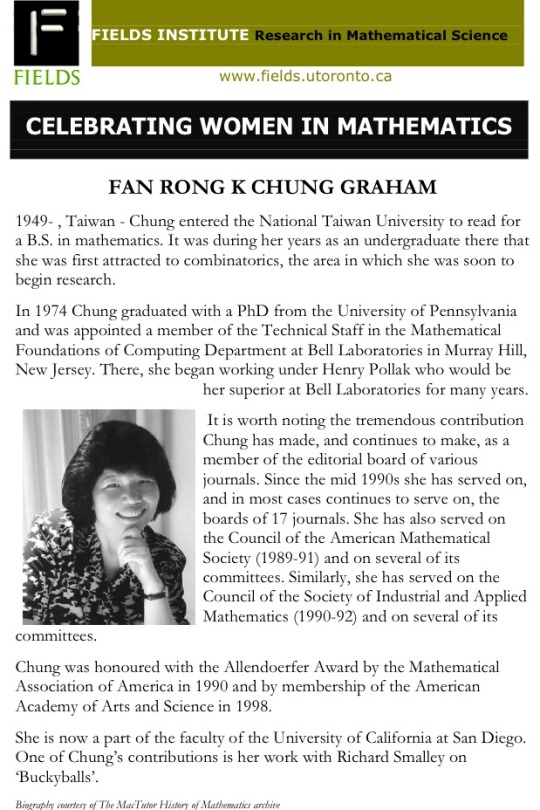
Posters for Women in Mathematics - Like these because it is a massive series, and there are modern women too!
http://www.fields.utoronto.ca/resources/WIMposters/
74 notes
·
View notes
Text
Maria Gaetana Agnesi
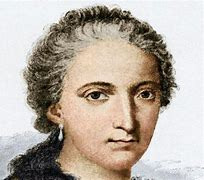
Maria Gaetana Agnesi was born in Milan in 1718. Her intellectual pursuits started at a young age when she began to attend philosophy and mathematics seminars in her own home. Based on her experiences attending these academic lectures, Agnesi wrote a collection of essays in 1738 called Propositiones Philosophicae containing nearly 200 propositions, and in which she encouraged women to be educated.
Agnesi’s pedagogical work came from necessity. In order to provide a reference for some of her 20 siblings, at the age of 30 she wrote Instituzioni Analitiche ad uso della gioventù italiana (Analytical Institutions), which explained differential and integral calculus. This was one of the first texts to comprehensively treat mathematical analysis, of both the finite and infinitesimal. In her work she brought the ideas of many mathematicians together in a clear and concise way that would be used for generations to come. Because of this text, Agnesi was elected to the Bologna Academy of Sciences.
Her most famous contribution to mathematics is the Witch of Agnesi, a sine curve whose equation she wrote based on Fermat and Grandi’s study. In 1750, Pope Benedict XIV appointed her to be a reader at the University of Bologna (the first woman to be given the position) and later chair of mathematics, but historical records are not clear as to whether she served in either role. She turned from mathematics to religious service and charity work (especially caring for the poor and infirm) around age 34, and lived to age 80.
References
The 18th-Century Lady Mathematician Who Loved Calculus and God. Smithsonian Magazine, May 16, 2018.
http://www.math.wichita.edu/history/Women/agnesi.html
https://www.agnesscott.edu/lriddle/women/agnesi.htm
0 notes
Text
" Girls are capable of doing everything men are capable of doing. Sometimes they have more imagination than men."
- Katherine Johnson
0 notes
Text
" I changed what I could, and what I couldn't, I endured."
- Dor0thy Vaughn
6 notes
·
View notes